Five years on, Quebec mosque attack still haunts Muslim community
Quebec City, Canada – Mohamed Labidi stops under the archway, his feet on the edge of the rich red carpet that extends across the main prayer room of the Quebec Islamic Cultural Centre. “He didn’t cross this line,” says Labidi. “He always fired from here.”
Labidi was not at the mosque when a gunman shot into this room from the exact spot where the Muslim community leader is now standing. But he knows where worshippers took cover, where survivors were injured, and where victims were fatally gunned down. The date it all happened – January 29, 2017 – remains etched in his mind.
“That’s the spot where people were hiding,” Labidi tells Al Jazeera, pointing to the mihrab, an enclave used by the imam to lead prayers. “Brother Hassane, he fell here,” he says, walking across the room, before pausing at another corner: “Brother Thabti, he fell near that post.”
Alexandre Bissonnette’s deadly rampage inside Quebec City’s largest mosque lasted less than two minutes. But by the time he finished firing dozens of rounds into the house of worship, six men were dead, five others were seriously injured, and the city’s tight-knit Muslim community found itself at the forefront of a national debate around hate-fuelled violence.
“All that,” says Labidi, “in two minutes.”
The community
Located on the banks of the St Lawrence River, Quebec City is one of the oldest European settlements in North America. A popular tourist destination in the predominantly French-speaking province of Quebec, it is perhaps best known for the picturesque, cobblestoned streets of Vieux-Quebec (Old Quebec), an annual winter carnival, and the historic Plains of Abraham riverside park.
The Islamic Cultural Centre sits off a main thoroughfare in the city’s residential Sainte-Foy neighbourhood. Labidi says the building underwent a recent renovation, making it about a third larger than when the attack took place, and the mosque’s carpeting is now red, changed from the green that had been stained with blood.
A solid, white exterior wall was built to face the street, providing more protection than the previous glass façade. New security measures are also in place, including electronic key cards for entry, a security desk that is manned during all prayers, and two additional emergency exit doors.
Yet even with the changes, the tragedy that took place exactly five years ago this week is never far from people’s thoughts.
Outside the mosque, three black stone plinths stand in a memorial to those killed. Each is adorned with two names: Azzeddine Soufiane and Aboubaker Thabti; Khaled Belkacemi and Abdelkrim Hassane; and Ibrahima Barry and Mamadou Tanou Barry. A quote, in French and Arabic, by Lebanese poet Khalil Gibra is etched on another black stone: “One may not reach the dawn save by the path of the night.”
For Khadija Thabti, whose husband Aboubaker was among those fatally shot, January has become the toughest month of the year. “When we get to that date [January 29], it’s very difficult for us as a family,” the 44-year-old mother of two children, aged eight and 16, tells Al Jazeera in a phone interview. “Even today … when I speak about it, I cry.”
The Thabti family moved to Quebec in 2011 from their native Tunisia – a move that Khadija says she was not 100 percent in favour of, because it meant she would have to leave her family and friends. But she says her husband gave her the courage to move to Canada.
“I told myself, ‘It’s OK, with my partner, with my love, it’ll be OK.’ But now I’m alone,” she says. She describes her husband as a loving man who was always smiling – and whose death has left a tremendous hole in her life. “We arrived with many dreams,” Khadija says. “And he was taken from us just like that, suddenly. He went to pray at a mosque and didn’t come back. Imagine – it’s not easy, really.”
The shooter
About 40 people were inside the Islamic Cultural Centre that Sunday five years ago, when Bissonnette arrived shortly after the day’s final prayer with a semi-automatic rifle and handgun.
The then-27-year-old shot and killed two men as they left the building – Ibrahima Barry and Mamadou Tanou Barry, friends who shared the same surname but were unrelated – before going inside and firing at worshippers in the main prayer room, killing four. In all, he shot 48 handgun rounds before leaving the mosque and later turning himself in.
Bissonnette told police after his arrest that a fear of refugees flooding into Quebec pushed him to commit his deadly rampage.
On January 28, 2017, a day before the attack, Canadian Prime Minister Justin Trudeau tweeted: “To those fleeing persecution, terror & war, Canadians will welcome you, regardless of your faith. Diversity is our strength #WelcomeToCanada”. Trudeau was responding to then-US President Donald Trump’s order to bar citizens of several Muslim-majority nations from entering the United States – a divisive and widely condemned policy known as the “Muslim ban“.
“I was watching TV, and we found out that the Canadian government was going to take in more refugees; those who couldn’t go to the US would come here. I saw that and it was like I lost my mind,” Bissonnette told a police investigator during a three-hour interview the day after the shooting, adding that he had been having suicidal thoughts.
Local media later reported that Bissonnette “searched for Trump-related material 819 times over the month before the attack”. A police report on the contents of his computer also said Bissonnette had consumed right-wing and far-right material, which influenced his “opinion on immigration and the presence of Muslims in Quebec”, according to the Montreal Gazette newspaper.
The hate
Hakim Chambaz says he had a decision to make: face his trauma head-on, or shield himself from the full truth of what happened. He chose the former – and remained in the courtroom during Bissonnette’s trial when security camera footage of the attack was shown.
“It allowed me to see what I hadn’t seen,” Chambaz tells Al Jazeera in an interview at a national park in Levis, Quebec, a suburb just across a bridge from Quebec City where he lives with his family. “I said to myself, ‘OK, I’m going to go, I’m going to watch, and I’m going to overcome.'”
While he escaped physically unscathed, Chambaz, like other survivors, says the images of that night still run through his mind, especially as the anniversary approaches every year. Chambaz saved the life of a young girl who was inside the mosque when the shooting broke out, shielding her behind a column that was no wider than 40cm.
When we get to that date (January 29), it’s very difficult for us as a family. Even today … when I speak about it, I cry
He and other members of Quebec City’s Muslim community are unequivocal: their mosque was targeted because of Islamophobia. That makes fighting such hatred crucial to preventing similar tragedies, says Chambaz.
“We need to think about the future of this city (and) try to build a new revival for the Muslim community here, which would like to live in peace and harmony … far from systemic racism, Islamophobia and discrimination.”
Over the past five years, community members have pushed decision-makers at all levels to denounce Islamophobia and put concrete measures in place to curb incitement and hate-fuelled violence, including through stricter gun control laws.
Trudeau, who immediately called the killings a “terrorist attack on Muslims”, has since faced criticism and calls to do more to stem Islamophobia. Those demands grew louder in the aftermath of a string of hate-fuelled incidents, including an attack that left four members of a Muslim family dead in London, Ontario, last June.
In response to the London killings, Trudeau’s government organised a National Summit on Islamophobia, a move that was welcomed by advocates as a good first step. In January 2021, Ottawa also designated January 29 as the National Day of Remembrance of the Quebec City Mosque Attack and Action Against Islamophobia.
“The killings that happened in the last five years are the result of a lot of hate that can be prevented through policies,” says Lina El Bakir, Quebec advocacy coordinator at the National Council of Canadian Muslims, which pushed to have January 29 recognised as a national day against Islamophobia. “So we are looking at our leaders to take a concrete stance and concrete measures to counter that.”
The province
While Islamophobia remains a pressing issue across Canada, it has become especially so in Quebec, where a history of fighting to push the Roman Catholic Church out of public life has morphed into a form of secularism that civil rights groups say now discriminates against religious minorities – and Muslims in particular.
A recent law banning some public sector workers from donning religious symbols on the job is being challenged in the courts, and the case could ultimately end up before the Supreme Court of Canada. The legislation, known as Bill 21, has been denounced by activists and legal experts as unconstitutional, and especially harmful to Muslim women who wear the hijab.
Many advocates have also criticised the Quebec government, saying right-wing Premier Francois Legault’s refusal to acknowledge that systemic racism and Islamophobia exist in the province is counterproductive. Legault in 2019 said he did not support a national day against Islamophobia because “there is no Islamophobia in Quebec.” He later revised his comments, saying “there is Islamophobia, xenophobia, racism and hatred, but no Islamophobic current” in Quebec. The province “is not Islamophobic or racist”, he added.?
For Bakir, this attitude – and the “Othering” of Muslims in Quebec – are part of the problem.
“Being Muslim and being Quebecois are not mutually exclusive, and this needs to be put forward in [public discourse],” she tells Al Jazeera, adding that resources need to be allocated to better educating the next generations of Quebecers against hateful views. “We need to see leaders [and] grassroots organisations fight together to make sure that no one feels like they are not accepted within Quebec. Unfortunately, Bill 21 does that; that’s why we need to fight it.”
The sentencing
Meanwhile, the Supreme Court of Canada is set to take up a legal challenge to Bissonnette’s prison sentence for the mosque attack later this year – a process that survivors say will undoubtedly stir up painful memories.
Bissonnette pleaded guilty in 2018 to six counts of first-degree murder and six counts of attempted murder. “I am ashamed, ashamed of what I did. I do not know why I committed such a senseless act,” he told the court as he entered his plea. A few weeks later, however, prosecutors said a prison social worker had reported that Bissonnette told her he regretted not killing more people at the mosque, the Montreal Gazette and other local media reported.
A year later, Quebec Superior Court Justice Francois Huot sentenced him to life in prison without the possibility of parole for 40 years. Bissonnette had faced as many as 150 years without a chance at parole under a 2011 law that allows Canadian courts to hand down consecutive sentences (each first-degree murder count comes with 25 years). But Huot said such a lengthy penalty would be “unreasonable”.
Bisonnette’s lawyers appealed the sentence, and in November 2020, the Quebec Court of Appeal ruled (PDF) that the Canadian sentencing provisions were unconstitutional and should be struck down. It reduced Bissonnette’s sentence to life in prison without the possibility of parole for 25 years. But Quebec appealed to the Supreme Court, asking for the gunman to be barred from accessing parole for 50 years. The top court will hear the case in March.
“Why are we the only case where they didn’t apply it?” he says, pointing to the sentencing of Justin Bourque, who shot and killed three police officers in the eastern province of New Brunswick in 2014 and was given life in prison without the possibility of parole for 75 years.
“This one [Bissonnette], he planned, he killed six in a house of worship. They gave him 25 years. What’s the reason? Is this fair? Of course, it’s unfair,” Derbali says. “The law is a federal law … We want it to be applied equitably everywhere in Canada. It’s simple.”
The future
Back at the Islamic Cultural Centre, a light but steady snow is falling as Mohamed Khabar, a local barber, points to the top of his knee and then to his big toe, where bullets hit him during the mosque attack. Bullet fragments are still embedded in his foot, a permanent memory of what happened. “Even though five years have passed, the attack is still there – it’s still there physically, mentally,” he says.
Khabar thought he was moments from death, as he watched friends he had been chatting with seconds earlier fall under a hail of bullets. “I didn’t move, I didn’t run. I thought to myself, ‘This is it, maybe my life ends here, it’s over for me,'” he recalls.
But after he was shot a second time and realised he was injured, Khabar hid in the basement of the mosque. Police eventually found him and took him to get medical care.
“The attack, it’s something that is engraved in your memory. I can’t forget it. I feel as though something got broken. It was never repaired; we can’t repair it. You live with it – because you have no other choice,” he says, adding that support from the Muslim community has helped him cope with the ongoing psychological toll.
Ibrahim Sbai, another attack survivor, says the sense of community has only become stronger in the aftermath of the violence. “There is something inside of me that has broken since that moment, seeing my brothers and everything,” he says, his voice trailing off. “Life continues. The damage is done, but what we want is for it never to happen again, for it to stop – this hatred.”
More people are attending prayers at the mosque now than before the attack, both Sbai and Labidi say, as people have refused to allow the shooting to prevent them from being together. The mosque provides a place of solace, Sbai adds: “Going to the mosque, that’s something essential – and this act is not going to stop us.”
Khabar, who also continues to pray at the mosque, agrees: the Muslim community of Quebec City will remain unwavering and carry on. “Of course, the consequences are still there – physically, mentally – but the courage is still there, too,” he says. “That we will stay here, that we will go to our mosque, and that no one will stop us from going to the mosque and saying what we believe. That’s what’s essential.”






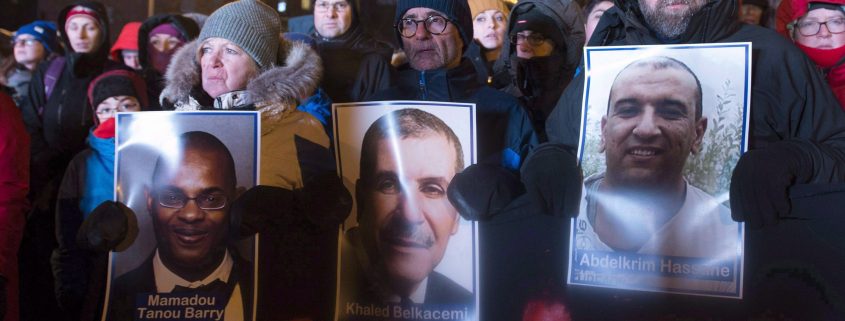
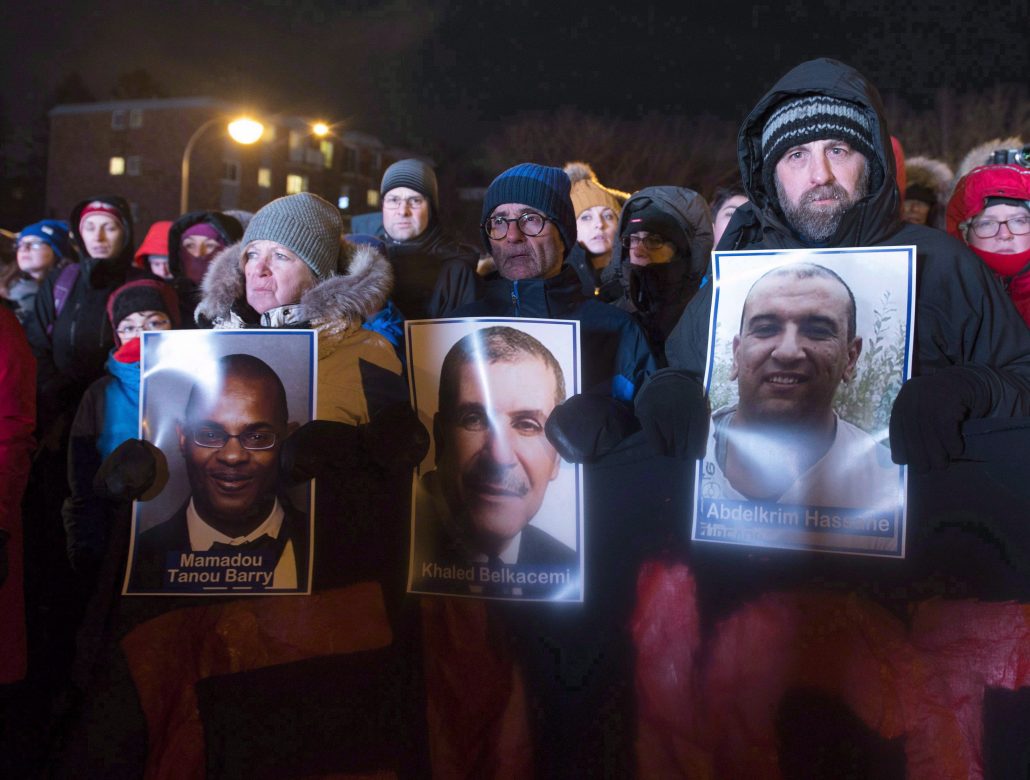

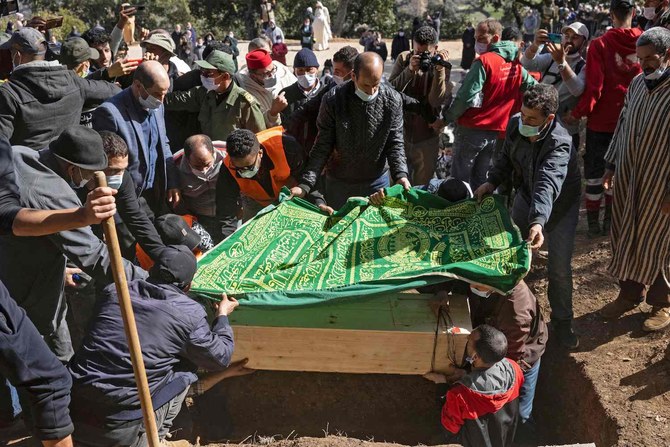

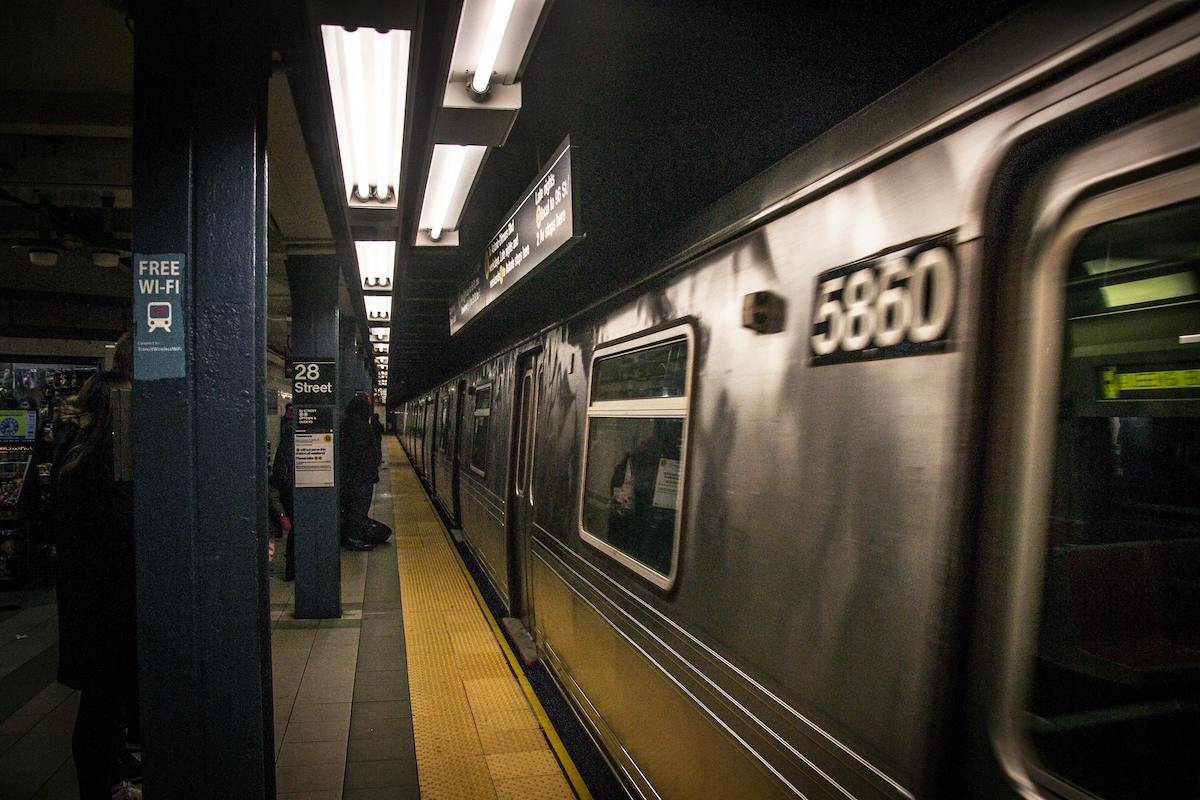
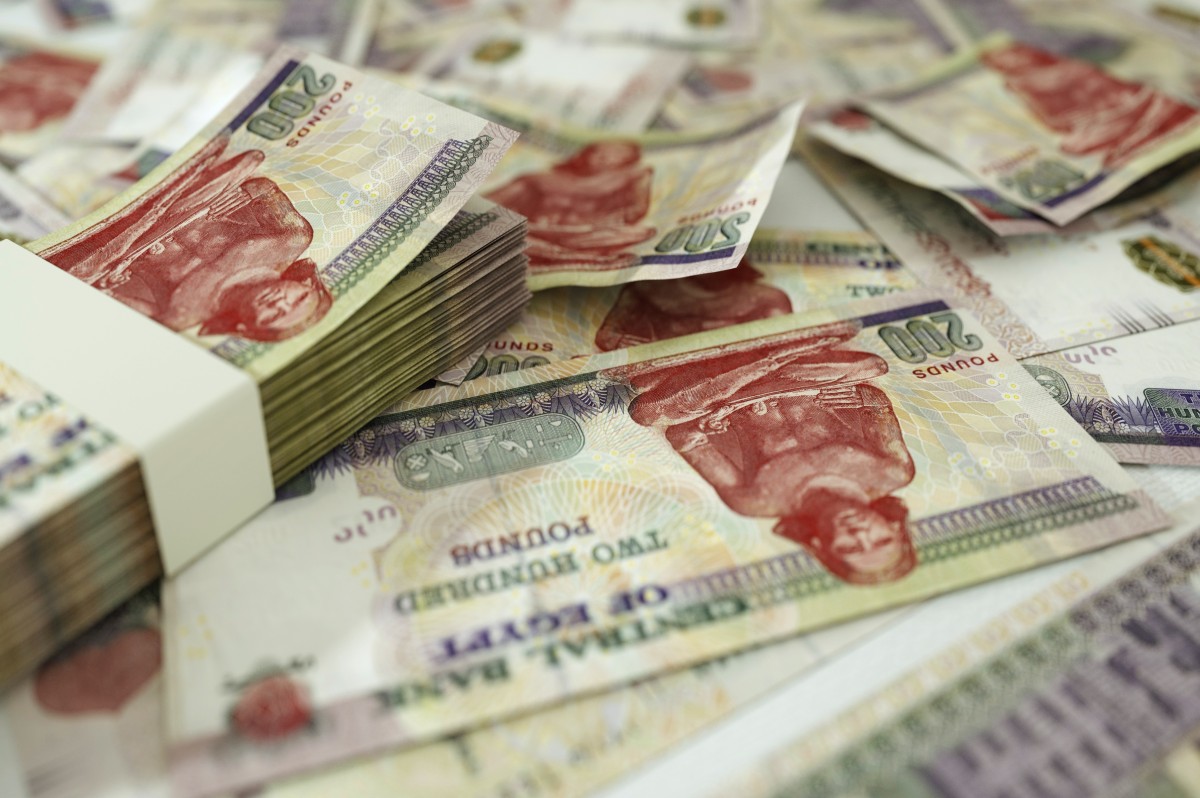
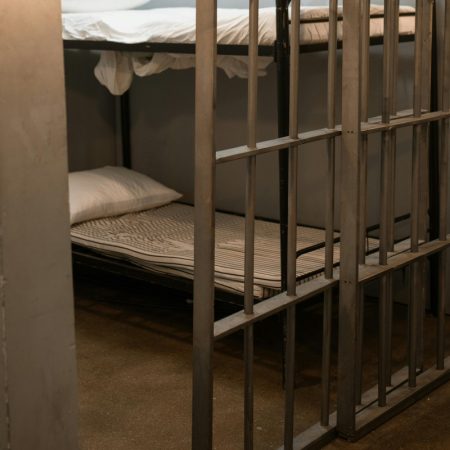
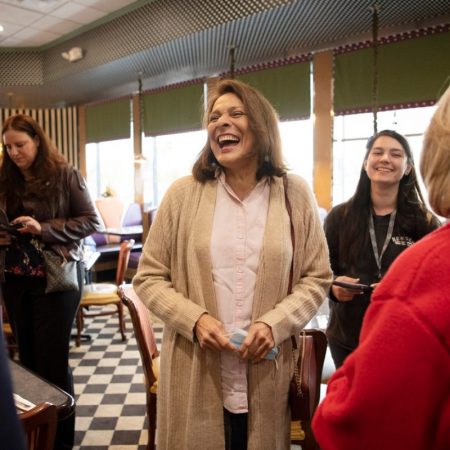






2022
1,104 views
views
0
comments